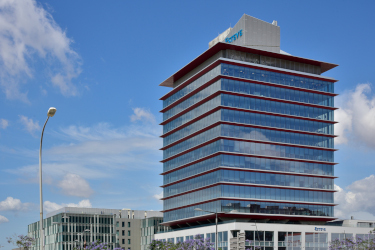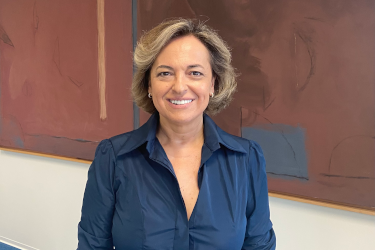17/05/2018
PHARMACEUTICAL ASSISTANCE IN SOCIO-MEDICAL CENTERS IS KEY TO THE CONTINUUM OF CARE PROVIDED TO MULTICONDITION PATIENTS
The data of a survey on pharmaceutical provision to socio-medical centers of Andalusia was presented at this meeting
This survey is based on the piloting of Decree 512/2015 initiated by the Andalusian Department of Health and was conducted in 14 socio-medical centers attending to some 3,500 patients
The goal is providing patients with homogenous care at all times regardless of the center where they receive it and the responsible professional
The increase of multicondition or complex chronic patients requires the health system to adapt to a new reality by using a multidimensional approach and continuous, integrated care. A survey conducted by 12 services of Hospital Pharmacy and 14 socio-medical centers of Andalusia has allowed ascertaining the actual pharmaceutical provision in these centers and detecting areas for improvement. This took place during the 1st Joint Meeting of Hospital Pharmacy Units and Socio-Medical Centers, sponsored by ESTEVE, held in Seville, and attended by some one hundred professionals in different fields.
In Andalusia multicondition patients account for 4% of the population and consume up to 65% of the health resources of this Autonomous Community1. This makes it necessary to launch new initiatives that provide the patient with continuum of care regardless of the center where they receive it and the responsible professional.
The Health Department of Andalusia decided to conduct the piloting of Decree 512/2015 on pharmaceutical provision in socio-medical centers as a measure of management efficiency. A dozen Hospital Pharmacy services and 14 centers attending to 3,500 patients conducted a survey on the present situation.
According to Bernardo Santos, Head of Section at the Pharmacy Service of University Hospital Virgen del Rocío of Seville, "these are the first objective data we have on the situation in our Autonomous Community. The results are positive and all the objectives set in this piloting have been met: all centers dispense treatments as unit-doses, ensure computer records of prescriptions, and have pharmacological guidelines, among others".
He added that "this piloting has been a success, a network between centers has been created to find opportunities for collaboration, and the meeting has potentiated and strengthened this network".
For her part, Dr. María Isabel Galvá, a geriatrician at the Heliópolis Socio-Medical Center of Seville, stated that "implementing piloting and pharmaceutical provision has entailed hard work at the center, but eventually we have seen nothing but advantages. We have met a long sought-after goal: the coordination with Primary Care and Hospital Care centers. Also, we have been able to access health resources which thus far were limited, such as medicines requiring a visa, new anticoagulants or broad-spectrum antibiotics by intravenous route".
In fact, the key aspects of piloting were approached during this meeting, such as pharmacological guidelines as an element of quality, electronic prescriptions, and provision of care according to the degree of complexity. Also, successful cases related to nutrition, to the treatment of complex infections and to therapy optimization in persisting anemia, have been presented. In this sense, Dr. Galvá explained that "we initiated the project for the optimization of oral iron therapy and conducted a nurse training program for the administration of parenteral iron at the center, thus avoiding the patients visit to the hospital".
Some one hundred pharmacists and health professionals from socio-medical centers not incorporated or partially incorporated into the Andalusian Health Service (SAS) were shown the most active strategy that this Autonomous Community is pursuing in chronicity and in multicondition patients. In fact, the purpose of this meeting was to create a discussion forum for health professionals in different fields on how cross-cutting and multidisciplinary work focused on integrated care should be improved, in line with the chronicity strategy of the Andalusian Regional Executive (Junta de Andalucía).
This meeting also included three simultaneous workshops focused on different topics: strategies in the management of patients with difficulty in swallowing; anticholinergic burden, cognitive impairment and falls; and tools to improve the adequacy of pharmacological treatment through the analysis of several cases.
The meeting was attended by Mª Ángeles Fernández, the Territorial Delegate of Equality, Health and Social Policies in Seville; Manuel Ollero, the Coordinator of the Integrated Care Process for Multicondition Patients of the Health Department of the Junta de Andalucía; and several national experts.
The Andalusian Integrated Care Process (PAI)
In recent years the patients profile has changed from chronic to complex chronic or multicondition, and this will worsen over the coming years on account of the gradual ageing of the population; indeed, Spain will have the worlds third oldest population in 2050. This calls for a personalized, cross-cutting, multidimensional health system centered on the patient rather than on the disease.
The third edition of the Andalusian Integrated Care Process (PAI) was presented at this meeting. This process identifies a group of cross-cutting interventions common to all multicondition patients, such as prevention and promotion activities, activation and self-management of the patient, activation of the social support network, pharmacotherapeutic optimization, rehabilitation, functional and cognitive preservation, and advance planning of decisions.



